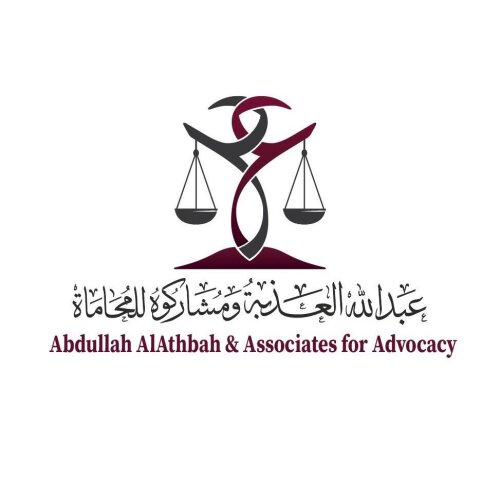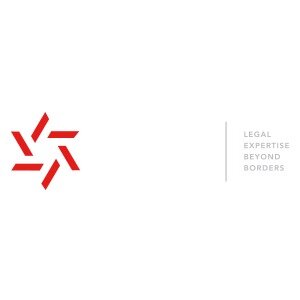Best Project Finance Lawyers in Qatar
Share your needs with us, get contacted by law firms.
Free. Takes 2 min.
Or refine your search by selecting a city:
List of the best lawyers in Qatar
About Project Finance Law in Qatar
Project finance in Qatar is a specialized area of law focused on funding large infrastructure and development projects, such as energy facilities, transportation networks, utilities, and real estate developments. These projects commonly follow a nonrecourse or limited recourse financial structure, which means that repayment is mainly dependent on the cash flow generated by the project itself, rather than the general assets or creditworthiness of the project sponsors. In Qatar, project finance is driven by the country's commitment to economic diversification, rapid urban development, and hosting major international events. The government, local sponsors, international banks, and multilateral agencies often participate in these high-value ventures, making the legal landscape complex and multifaceted.
Why You May Need a Lawyer
Project finance transactions in Qatar are often intricate and involve multiple stakeholders, cross-border considerations, and high-value contracts. You may require legal assistance in situations such as:
- Structuring and negotiating project finance agreements to allocate risks and responsibilities among parties
- Drafting and reviewing loan, security, and concession agreements
- Navigating regulatory and permitting requirements for large infrastructure projects
- Addressing compliance issues related to local and international financial regulations
- Resolving disputes or claims arising during the execution of the project
- Conducting due diligence on land, environmental, or licensing issues
- Securing government approvals or sovereign guarantees
- Advising on tax structuring and investment protection for international sponsors
A specialized lawyer can help mitigate risks, ensure contractual clarity, and guide stakeholders through the legal and regulatory landscape of project financing in Qatar.
Local Laws Overview
Project finance in Qatar is shaped by a blend of Qatari laws, international best practices, and sector-specific regulations. Key legal aspects to consider include:
- Commercial Companies Law: Governs the formation and operation of entities involved in project finance
- Public Private Partnership (PPP) Law: Lays out provisions for government collaboration with private entities on major infrastructure projects
- Securities Laws and Collateral Regulations: Set requirements for taking and enforcing security interests over project assets
- Land and Property Laws: Address ownership, registration, and transfer of land or rights of way
- Contract Law: Covers agreements between sponsors, lenders, contractors, and government authorities
- Environmental and Licensing Regulations: Establish standards for obtaining project approvals, permits, and clearances
- Labour and Immigration Laws: Apply to workforce management and recruitment for large-scale projects
- Foreign Investment and Tax Laws: Impact the structure and profitability of cross-border projects
Additionally, the Qatar Financial Centre (QFC) has its own legal and regulatory framework, making it important to determine the applicable jurisdiction for each project.
Frequently Asked Questions
What is project finance, and how does it work in Qatar?
Project finance refers to funding large-scale projects where lenders rely on the project's future cash flow and assets for repayment, rather than the general assets of sponsors. In Qatar, it is common for major infrastructure, energy, and public utility projects.
Who are the typical participants in a project finance transaction in Qatar?
Key participants often include government authorities, project sponsors, local and international banks, multilateral agencies, contractors, and sometimes the Qatar Financial Centre Authority.
What are the regulatory approvals required for project finance transactions?
Necessary approvals can involve multiple government ministries, environmental and land-use authorities, and sector-specific regulators, depending on the nature of the project.
Are foreign entities allowed to participate in project finance in Qatar?
Yes, foreign companies and investors are permitted, subject to regulations on foreign ownership, investment licensing, and compliance with local content or partnership requirements.
What types of security can lenders take in Qatari project finance deals?
Lenders commonly seek security interests over project assets, shares in the project company, receivables, and bank accounts, in accordance with Qatari secured transactions law.
What is the role of the Public Private Partnership (PPP) Law?
The PPP Law facilitates and regulates partnerships between Qatari government bodies and private sector participants for developing public infrastructure projects.
How are disputes resolved in project finance transactions in Qatar?
Disputes may be resolved through Qatari courts or arbitration, often under internationally recognized rules such as the ICC or QICCA, according to the chosen dispute resolution clause in contracts.
How long does it take to get regulatory approvals for project finance?
The timeline varies by project type, complexity, and sector. Obtaining all licenses and approvals can take several months or longer, so early planning is essential.
Are tax incentives available for project finance investments in Qatar?
Qatar offers various tax incentives, particularly within free zones and under the QFC regime. Each project should be evaluated individually for applicable benefits.
How can a lawyer assist with due diligence in project finance?
A project finance lawyer conducts thorough legal due diligence to identify regulatory, contractual, property, and compliance risks, ensuring the project is bankable and legally sound.
Additional Resources
Several organizations and governmental bodies can offer guidance or information regarding project finance in Qatar:
- Ministry of Commerce and Industry - for company incorporation and licensing
- Qatar Financial Centre Authority - for projects established under QFC regulations
- Qatar Central Bank - for banking and financial sector regulations
- Public Works Authority (Ashghal) - for infrastructure projects
- Ministry of Municipality - for land, construction, and environmental permits
- Qatar Chamber of Commerce and Industry - for business networking and support
- Qatar Free Zones Authority - for projects in designated free zones
- International law firms and local legal consultancies specializing in project finance
Next Steps
Navigating the project finance landscape in Qatar requires strategic planning and legal expertise. If you are considering involvement in a project finance venture:
- Gather detailed information about your project’s objectives, stakeholders, and structure
- Identify which Qatari laws and regulations may impact your project
- Consult with a project finance lawyer or legal consultant experienced in the local market
- Engage early with regulatory authorities to understand approval timelines and requirements
- Prepare to conduct thorough legal due diligence on all aspects of the project
- Seek legal support in negotiating, drafting, and finalizing contracts for all parties involved
- Develop a compliance plan for ongoing regulatory and reporting obligations
Taking these steps with the guidance of a qualified legal professional will help minimize risks and enhance the likelihood of project success in Qatar’s dynamic project finance sector.
Lawzana helps you find the best lawyers and law firms in Qatar through a curated and pre-screened list of qualified legal professionals. Our platform offers rankings and detailed profiles of attorneys and law firms, allowing you to compare based on practice areas, including Project Finance, experience, and client feedback.
Each profile includes a description of the firm's areas of practice, client reviews, team members and partners, year of establishment, spoken languages, office locations, contact information, social media presence, and any published articles or resources. Most firms on our platform speak English and are experienced in both local and international legal matters.
Get a quote from top-rated law firms in Qatar — quickly, securely, and without unnecessary hassle.
Disclaimer:
The information provided on this page is for general informational purposes only and does not constitute legal advice. While we strive to ensure the accuracy and relevance of the content, legal information may change over time, and interpretations of the law can vary. You should always consult with a qualified legal professional for advice specific to your situation.
We disclaim all liability for actions taken or not taken based on the content of this page. If you believe any information is incorrect or outdated, please contact us, and we will review and update it where appropriate.
Browse project finance law firms by city in Qatar
Refine your search by selecting a city.
















